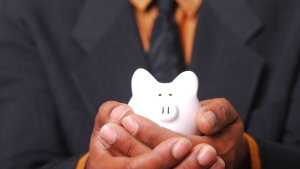Understandably, you might be worried about what could happen if you’re laid off or your business goes under during this second wave. If you’re concerned about potential job loss, it’s smart to start saving money now in order to prepare as best you can. Here are a few tips that can help.
Figure Out Your Survival Budget
First, you need to figure out exactly how much money you need to survive. If you don’t already know what your bare-bones budget is, now’s the time to determine how much you truly need to make it through. This budget should involve only the necessities, such as rent or mortgage payments, transportation, food, and other basics. While many Americans do live paycheck to paycheck, you might be spending more than you realize on non-essentials. By figuring out precisely how much you need to get by, you can then create an emergency fund to pad your savings.
Cut Out Unnecessary Expenditures
Once you know exactly how much you need for your essentials, you can trim the fat from your budget. That means you’ll need to eliminate any unnecessary expenditures for now. Be ruthless when you separate the musts from the wants. Although having a Netflix subscription is nice, it’s not actually vital to your survival. You might also realize you’re currently paying for services you aren’t even using. The average monthly cost of a gym membership is $58 — and even if health clubs are still open in your area, you might not be taking advantage of your membership if you’re worried about viral transmission. Whatever you don’t absolutely need or aren’t using regularly right now, it’s time to cancel and cut out those costs. When you’re feeling more financially secure, you can start to add them back into your budget.
Save Money on Monthly Bills
You might also be missing out on some ways you can reduce your monthly bills. Being more diligent about turning off lights, for example, can have major effects on your expenditures. The U.S. Department of Energy estimates that the average American home spends 5% to 10% of its budget solely on lighting. If you switch to LED bulbs or remember to shut lights off when you leave a room, your bills may become more manageable. Take a closer look at your heating expenditures, as well. If you can reduce your thermostat by a few degrees and get used to wearing warm layers around the house, you could save quite a bit. In general, making an effort to save energy and become more eco-friendly will also save you money each month.
Use Current Benefits to Your Advantage
If you currently receive certain health benefits at your job, you may want to figure out how to use those benefits now so that you’ll be in a better place if you do find yourself unemployed later. Since your insurance premiums will likely be going up in 2021, as well, it’s smart to get doctors’ visits in before the end of the year. While you’re there, you might want to ask about potentially getting a few months’ worth of any prescriptions you have. And if you have any sick or vacation days saved up, you should find out what happens to those accrued days if layoffs do occur. If your employer has agreed to pay those out, you could potentially continue to save up those days and subsequently put the money in your emergency fund if you are laid off.
The economy is in an unpredictable state right now, so it stands to reason that many Americans are once again worried about how their employment status will fare over the next few months. But if you take steps to save as much as possible right now, you’ll be in a better place if the worst does occur.


